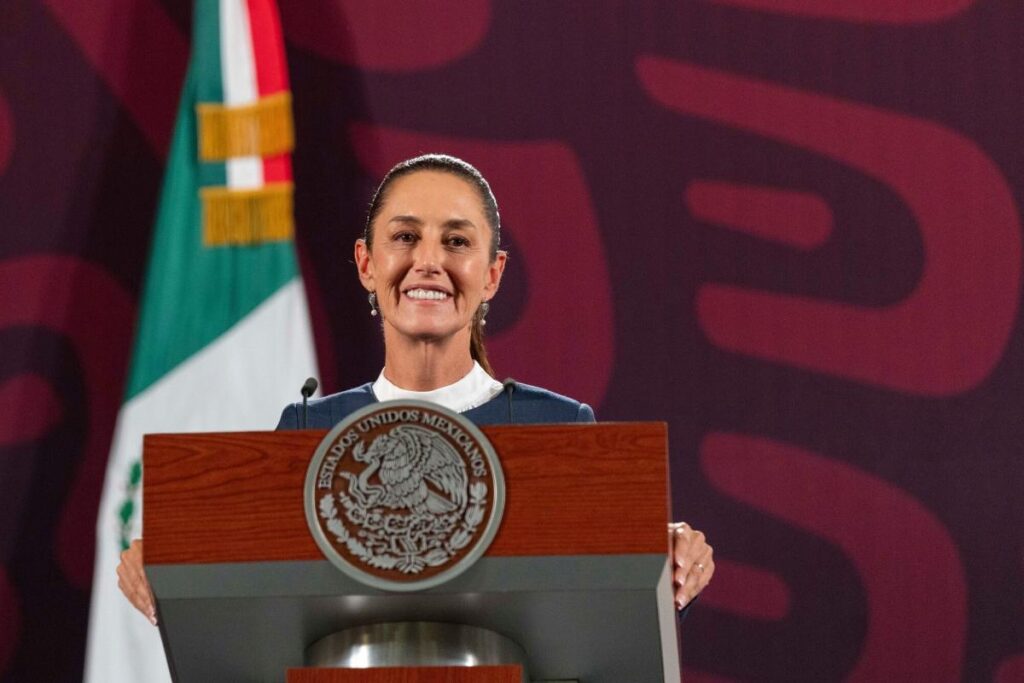In a significant move for investment in Mexico, prominent companies such as Amazon.com Inc. and Woodside Energy Group Ltd. have unveiled projects totaling approximately $20 billion. This initiative marks a pivotal victory for President Claudia Sheinbaum, who is actively working to attract business investment amid skepticism from corporate leaders. Mexico’s Economy Minister, Marcelo Ebrard, announced Woodside’s plan to invest $10.4 billion in collaboration with the state oil company, Petroleos Mexicanos, to develop a deepwater project in the Gulf of Mexico. Additionally, Amazon’s commitment of $6 billion aims to enhance its network and digital capabilities in Mexico by 2026, highlighting the tech giant’s trust in the market. Royal Caribbean Cruises Ltd. also announced a significant $1.5 billion tourism project in Quintana Roo state, further underscoring the approach of diversifying investment in various sectors.
During a recent meeting of the US-Mexico CEO Dialogue attended by around 240 domestic and foreign business leaders, President Sheinbaum sought to reassure attendees regarding potential risks related to recent constitutional reforms. These reforms have raised concerns among investors, who fear they might threaten democracy and judicial independence in Mexico, particularly given that the nation is the largest trading partner of the U.S. Key concerns stem from a judicial overhaul approved by Congress that proposes electing federal judges by popular vote and an energy bill favoring state-owned enterprises over private companies in energy production and distribution. Critics argue that these changes could jeopardize the independence of the judiciary and increase risks for foreign investment in Mexico by consolidating control within her political party, Morena.
In her address, Sheinbaum strongly defended her government’s intentions. She emphasized that her administration does not seek to exert control over the judiciary but aims to create a court system free from corruption. Sheinbaum also acknowledged the government’s ambition to command 54% of energy generation and transmission while assuring that there would be explicit rules guiding private investment in the remaining 46%. This reassurance is critical for investors who are uncertain about their future in Mexico’s energy landscape, especially given the government’s strong stance on prioritizing state-owned companies in energy matters. The establishment of working groups during the CEO meeting is an effort to foster dialogue with businesses regarding energy projects and to create a more inclusive investment environment.
Furthermore, Sheinbaum addressed the importance of developing clear regulatory frameworks for foreign investors in the energy sector. She committed to having a well-defined energy plan established by year’s end, alongside secondary laws that will lay out the participation processes for private firms in these energy endeavors. By proactively engaging with businesses to understand their concerns, the government aims to cultivate a more favorable climate for investment. Moreover, the formation of a digital transformation agency is intended to streamline administrative processes, minimize bureaucratic obstacles, and provide essential support to firms embarking on investment projects, thereby enhancing overall ease of doing business in Mexico.
Sheinbaum also highlighted the necessity to fortify the North American free-trade agreement, known as the US-Mexico-Canada Agreement (USMCA). Her perspective is rooted in the belief that the three countries involved should strive for complementary economic relations rather than engaging in competition. The intent is to nurture a collaborative environment that encourages growth and shared benefits for all three nations. With this strategic position, Sheinbaum aims not just to attract foreign investment but to ensure that it contributes positively to the region’s collective economic health.
In conclusion, the announcements by Amazon, Woodside, and Royal Caribbean represent more than just substantial investments; they signify a moment of optimism and potential revitalization for Mexico’s economy under President Claudia Sheinbaum. While challenges loom regarding recent reforms and their implications for judicial independence and foreign investment, the government’s commitment to transparent engagement and collaboration with business leaders is crucial. The initiatives outlined provide a framework for attracting continued investment and fostering a more stable economic environment, ensuring that Mexico could remain a competitive player on the North American economic stage.

